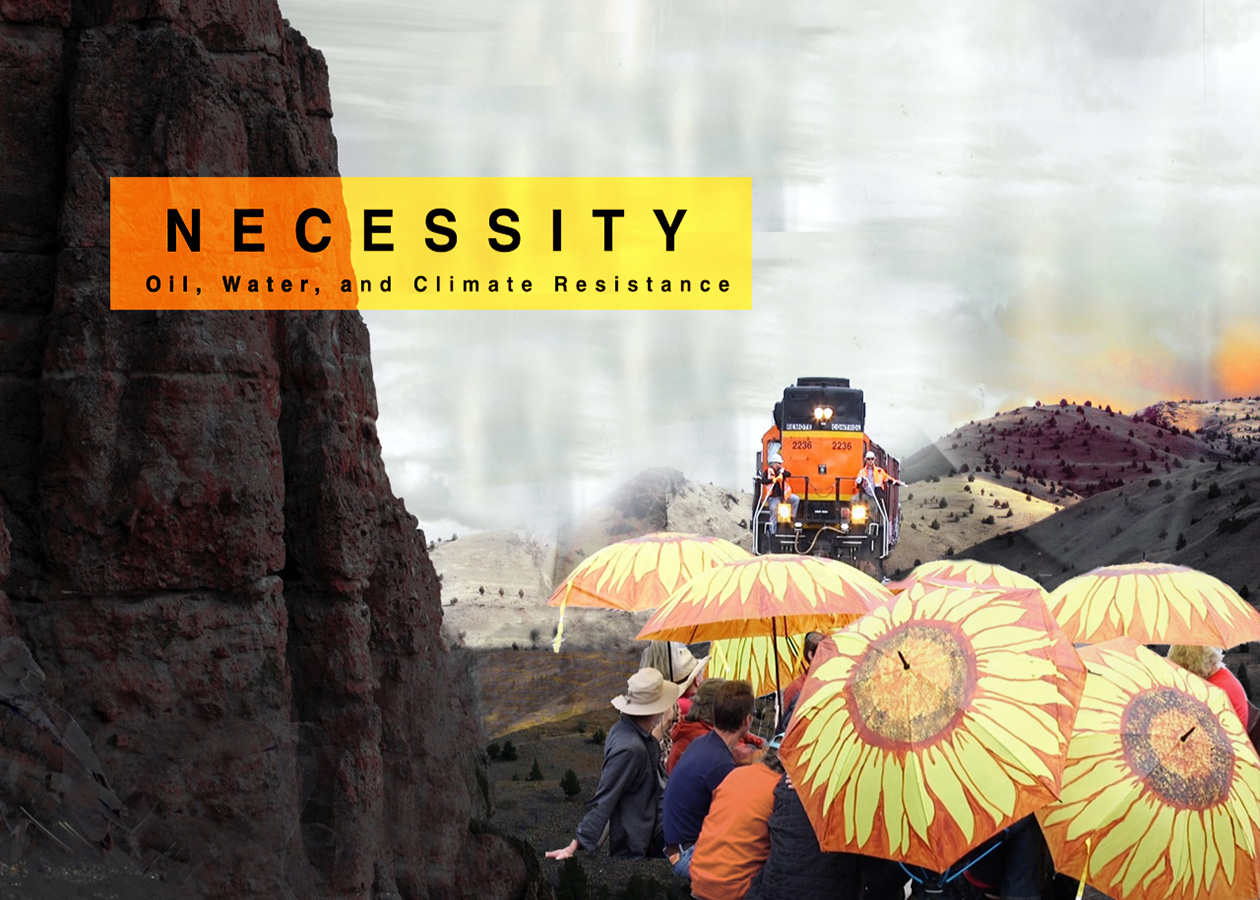As many of you know I have been involved in a project for years now that tries to raise awareness of not just the problem of climate change but of the ways we can support resistance against those ignoring or exploiting the crisis.




The last time I was able to shoot still-photography footage for Necessity – Oil, Water and Climate Resistance was early this year until public contact was no longer a possibility for me. I reported on it here.
The project had started in Minnesota, documenting how front-line communities who suffer the most consequences from the climate crisis fight against the expansion of pipelines carrying highly toxic tar sands oil through Native lands and essential waterways. I have linked to the trailer for the documentary before but will do so here again for new readers.




With very limited resources, we completed NECESSITY Part I in 2019, which is now available through the Zinn Education Project to educators and to activist groups for community screenings. Equally important, it led to co-producing a k-12 climate curriculum based on the documentary film through Zinn Education Project. For more information, go to the ZEP website. The film has also been part of the program of a number of festivals, including the Eugene Environmental Film Festival in October helping with our goal towards education.





It was surely a joint effort: Legal experts discussed the record of disparate treatment in the justice system and the legal strategy of the necessity defense, which makes a moral case for acts of civil disobedience, while medical and scientific experts addressed the health effects of fossil fuels and dangers of pipeline and refinery infrastructure. The filmmaking team itself built collectively on their training in psychology and anthropology. Most importantly, indigenous leaders provided deep insights, including forms of resilience and modes of resistance.



We are now on to NECESSITY Part II, hoping to complete it by spring 2021 and to distribute the feature-length films as a multi-part ongoing story of legal tactics, Indigenous leadership and allyship in the fight against fossil fuels and for climate justice. This round plays out in our very own backyard – the threatened resources and landscape of Oregon. It describes the organizing that has been done in the Pacific Northwest to keep fossil fuel installations out of our communities, an important part of helping our state be prepared.

Changes in weather patterns affect indigenous flora.



Most of us on the production team are volunteers. But there are production costs that cannot be covered simply by working for free. Here is the link to the campaign to help fund the effort: https://www.gofundme.com/necessity-oil-water-and-climate-resistance/



If you can donate, terrific. Equally welcome would be your willingness and/or ability to spread the word about the project and its educational services, if things are tight right now, or weighted in favor of more pressing charity needs.



Photographs today are of my attempts – paralleling those in the documentary – to capture the natural beauty of the region as well as the vulnerability of the local habitats.

Music is a contemporary work that speaks to ecological concerns: Become Ocean by John Luther Adams.







Drew Weatherstone
Beautiful images Friderike.. Thanks for sharing!
Will look further into this project once I’m settled again in Australia